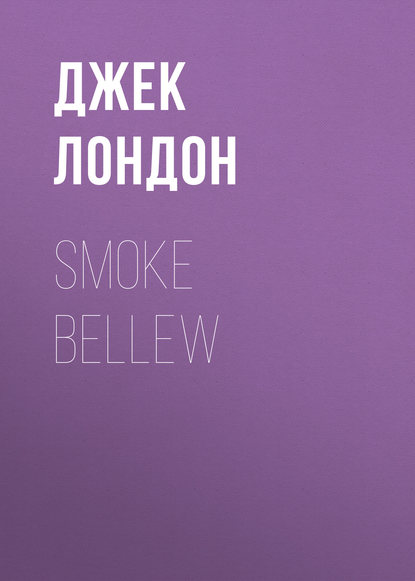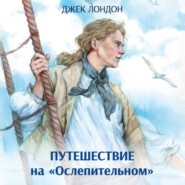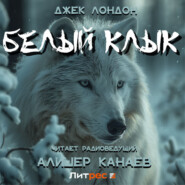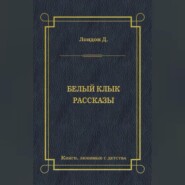По всем вопросам обращайтесь на: info@litportal.ru
(©) 2003-2024.
✖
Smoke Bellew
Настройки чтения
Размер шрифта
Высота строк
Поля
They looked at each other.
“It’s a go,” said Kit, as his hand went out in ratification.
In the morning, long before daylight, Shorty issued his call. “Come on!” he roared. “Tumble out, you sleepers! Here’s your coffee! Kick into it! We’re goin’ to make a start!”
Grumbling and complaining, Stine and Sprague were forced to get under way two hours earlier than ever before. If anything, the gale was stiffer, and in a short time every man’s face was iced up, while the oars were heavy with ice. Three hours they struggled, and four, one man steering, one chopping ice, two toiling at the oars, and each taking his various turns. The northwest shore loomed nearer and nearer. The gale blew ever harder, and at last Sprague pulled in his oar in token of surrender. Shorty sprang to it, though his relief had only begun.
“Chop ice,” he said, handing Sprague the hatchet.
“But what’s the use?” the other whined. “We can’t make it. We’re going to turn back.”
“We’re going on,” said Shorty. “Chop ice. An’ when you feel better you can spell me.”
It was heart-breaking toil, but they gained the shore, only to find it composed of surge-beaten rocks and cliffs, with no place to land.
“I told you so,” Sprague whimpered.
“You never peeped,” Shorty answered.
“We’re going back.”
Nobody spoke, and Kit held the boat into the seas as they skirted the forbidding shore. Sometimes they gained no more than a foot to the stroke, and there were times when two or three strokes no more than enabled them to hold their own. He did his best to hearten the two weaklings. He pointed out that the boats which had won to this shore had never come back. Perforce, he argued, they had found a shelter somewhere ahead. Another hour they labored, and a second.
“If you fellows’d put into your oars some of that coffee you swig in your blankets, we’d make it,” was Shorty’s encouragement. “You’re just goin’ through the motions an’ not pullin’ a pound.”
A few minutes later, Sprague drew in his oar.
“I’m finished,” he said, and there were tears in his voice.
“So are the rest of us,” Kit answered, himself ready to cry or to commit murder, so great was his exhaustion. “But we’re going on just the same.”
“We’re going back. Turn the boat around.”
“Shorty, if he won’t pull, take that oar yourself,” Kit commanded.
“Sure,” was the answer. “He can chop ice.”
But Sprague refused to give over the oar; Stine had ceased rowing, and the boat was drifting backward.
“Turn around, Smoke,” Sprague ordered.
And Kit, who never in his life had cursed any man, astonished himself.
“I’ll see you in hell, first,” he replied. “Take hold of that oar and pull.”
It is in moments of exhaustion that men lose all their reserves of civilization, and such a moment had come. Each man had reached the breaking-point. Sprague jerked off a mitten, drew his revolver, and turned it on his steersman. This was a new experience to Kit. He had never had a gun presented at him in his life. And now, to his surprise, it seemed to mean nothing at all. It was the most natural thing in the world.
“If you don’t put that gun up,” he said, “I’ll take it away and rap you over the knuckles with it.”
“If you don’t turn the boat around, I’ll shoot you,” Sprague threatened.
Then Shorty took a hand. He ceased chopping ice and stood up behind Sprague.
“Go on an’ shoot,” said Shorty, wiggling the hatchet. “I’m just aching for a chance to brain you. Go on an’ start the festivities.”
“This is mutiny,” Stine broke in. “You were engaged to obey orders.”
Shorty turned on him. “Oh, you’ll get yours as soon as I finish with your pardner, you little hog-wallopin’ snooper, you.”
“Sprague,” Kit said, “I’ll give you just thirty seconds to put away that gun and get that oar out.”
Sprague hesitated, gave a short hysterical laugh, put the revolver away, and bent his back to the work.
For two hours more, inch by inch, they fought their way along the edge of the foaming rocks, until Kit feared he had made a mistake. And then, when on the verge of himself turning back, they came abreast of a narrow opening, not twenty feet wide, which led into a land-locked enclosure where the fiercest gusts scarcely flawed the surface. It was the haven gained by the boats of previous days. They landed on a shelving beach, and the two employers lay in collapse in the boat, while Kit and Shorty pitched the tent, built a fire, and started the cooking.
“What’s a hog-walloping snooper, Shorty?” Kit asked.
“Blamed if I know,” was the answer; “but he’s one just the same.”
The gale, which had been dying quickly, ceased at nightfall, and it came on clear and cold. A cup of coffee, set aside to cool and forgotten, a few minutes later was found coated with half an inch of ice. At eight o’clock, when Sprague and Stine, already rolled in their blankets, were sleeping the sleep of exhaustion, Kit came back from a look at the boat.
“It’s the freeze-up, Shorty,” he announced. “There’s a skin of ice over the whole pond already.”
“What are you going to do?”
“There’s only one thing. The lake of course freezes first. The rapid current of the river may keep it open for days. This time to-morrow any boat caught in Lake Labarge remains there until next year.”
“You mean we got to get out to-night? Now?”
Kit nodded.
“Tumble out, you sleepers!” was Shorty’s answer, couched in a roar, as he began casting off the guy-ropes of the tent.
The other two awoke, groaning with the pain of stiffened muscles and the pain of rousing from the sleep of exhaustion.
“What time is it?” Stine asked.
“Half-past eight.”
“It’s dark yet,” was the objection.
Shorty jerked out a couple of guy-ropes, and the tent began to sag.
“It’s not morning,” he said. “It’s evening. Come on. The lake’s freezin’. We got to get acrost.”
Stine sat up, his face bitter and wrathful. “Let it freeze. We’re not going to stir.”
“All right,” said Shorty. “We’re goin’ on with the boat.”

















